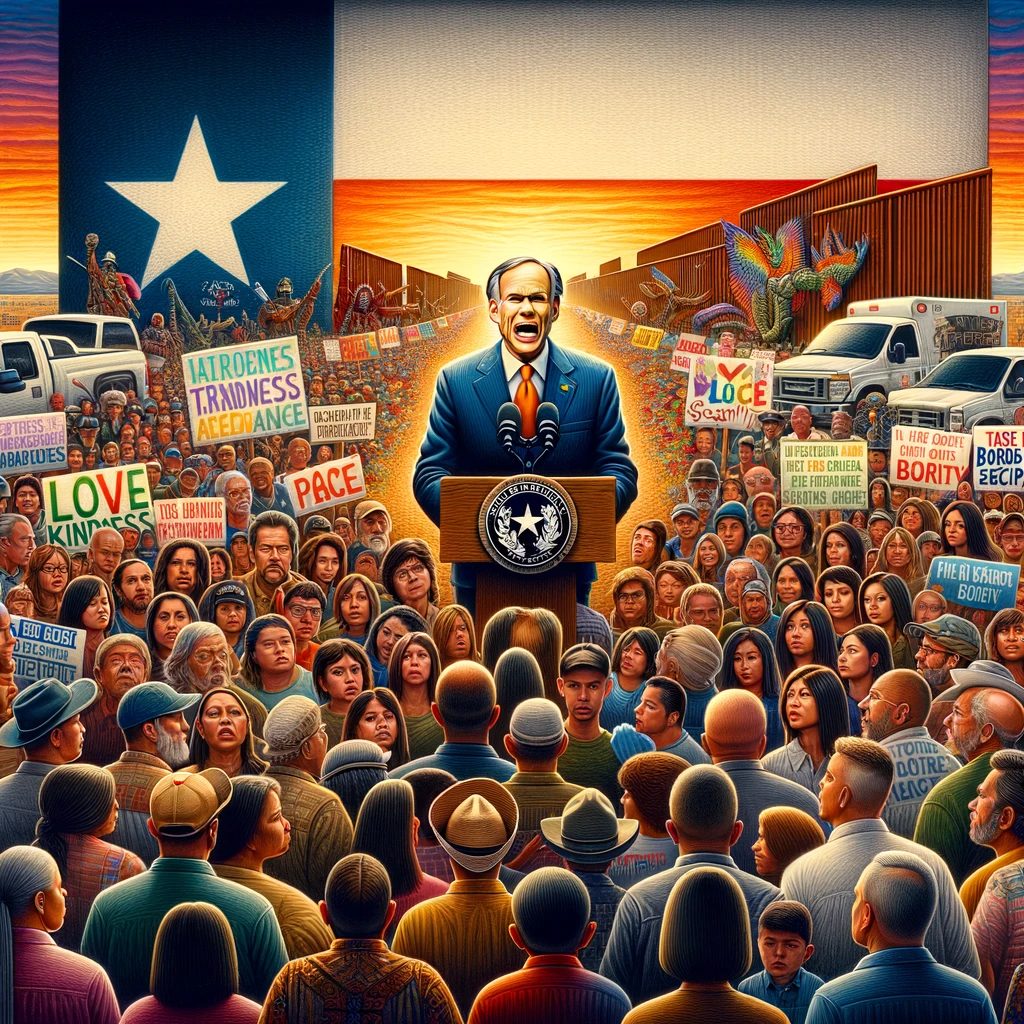- Summary Points
- LULAC accuses Texas Governor Greg Abbott of inciting extremist violence with his border management rhetoric.
- The group references the 2019 El Paso shooting, fearing similar hate-driven attacks.
- Reports of a “Take Our Border Back Convoy” planning to head to Texas heighten concerns.
The oldest Latino civil rights organization in the United States, the League of United Latin American Citizens (LULAC), has sounded an alarm over what it perceives as inflammatory rhetoric from Texas Governor Greg Abbott. The group’s concerns center on the potential for such rhetoric to spark violence akin to the tragic 2019 El Paso shooting, which targeted the Mexican community.
LULAC’s National President, Domingo García, explicitly linked Abbott’s comments on border management to a potential rise in violent bigotry, urging vigilance among members, particularly in Texas. García’s statement comes amid escalating tensions between Texas and the federal government over the handling of border security.
This warning coincides with reports of a group known as the “Take Our Border Back Convoy” organizing rallies and planning to head to Texas. While the convoy’s declaration emphasizes unity, peace, and respect for law enforcement, LULAC’s statement raises concerns about the involvement of armed extremists with hateful agendas. The group specifically mentioned that some organizers of this convoy referred to themselves as “God’s army,” which adds a concerning dimension to the event.
Governor Abbott, a Republican, recently intensified his standoff with the Biden administration regarding border security. Following a Supreme Court decision that allowed federal Border Patrol agents to remove razor wire set up by Texas law enforcement, Abbott reiterated his characterization of the situation along the border as an “invasion.” This hardline stance and the accompanying rhetoric have been perceived by LULAC as a potential catalyst for extremist violence.
LULAC’s critique of Abbott extends beyond the potential for violence. García accused the governor and his supporters of creating a “media circus” for political and financial gain, while strongly condemning hate speech and actions that endanger human lives. This includes the lives of those coming to the United States to escape dire conditions and seek refuge.
In summary, LULAC’s statement underscores the delicate balance between political rhetoric and public safety. The group’s concerns reflect a broader apprehension about the potential for words to translate into violent actions, especially in the context of heightened tensions over immigration and border security. As the situation evolves, the call for responsible rhetoric and the prevention of violence becomes increasingly pertinent.










